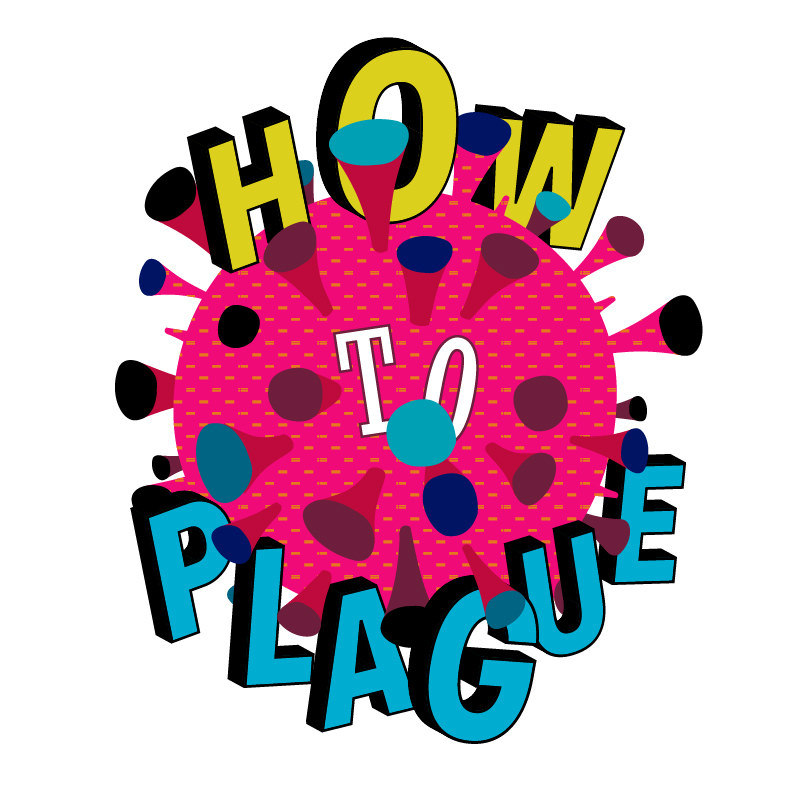
The journalists at BuzzFeed News are proud to bring you trustworthy and relevant reporting about the coronavirus. To help keep this news free, become a member and sign up for our newsletter, Outbreak Today.

Hi, I’m Katie Notopoulos, a tech reporter here at BuzzFeed News, and I have no actual expertise in epidemiology, but I sure do enjoy telling people how to live their lives. Which means I’m the perfect person to tell you How to Plague. This is BuzzFeed News' advice column for these incredibly confusing times. The coronavirus pandemic is changing rapidly, with new information coming out seemingly by the hour. I’ll try to help with your queries about social distancing etiquette and ethical dilemmas large and small, and call up some actual experts to weigh in when needed.
Send me your questions at katie@buzzfeed.com, or sign up for our text messaging service below to send me questions that way.
My close friend has had sore throat, ongoing chest pain, and difficulty breathing for the past 3 days. She just went into the ER tonight for COVID-19. She is extremely healthy, fit, and in her early 30s. I'm hopeful she will recover, but I don't know how to help as they aren't allowing visitors. Any thoughts on how to help?
—Anonymous, Minnesota
Let’s assume there are two scenarios: 1) Your friend is seriously ill and is admitted to the hospital or 2) your friend is discharged quickly to recuperate at home.
In scenario one, there’s not much you can do for her directly while she’s in the hospital since you can’t visit her or bring things to the hospital for her. But if she has a partner or kids at home, you can definitely support them. There are two ways you can help support her family right now:
Offer to act as the press secretary. Ask her partner (or close relatives if she lives alone) if they’d like your help, obviously. It can be very stressful for her family to deal with a flood of texts and emails asking for updates on her health. Do a group text, email list, or even Facebook updates that will let her wider social circle know what’s going on or how they can help.
Offer to act as the conductor of a meal train. Instead of having eight people drop off lasagnas all on the same day, have people sign up to take a day and meal to drop off food and supplies. Leave instructions for how people can safely drop off food without bothering the family or exposing themselves. This website is helpful for organizing a meal train — you can include tasks like grocery shopping that they can’t do themselves right now.
In scenario two, she’ll get out quickly but will still need help around her home — and will be unable to go out shopping and probably pretty sick. Find out what items she wants and needs, whether it’s medicine or food or toiletries. Do the meal train with her friends so that she can rest and focus on recovery and not worry about cooking or shopping.
My son's daycare is still open as they are hospital-owned. However, on Friday, they told us that they were only going to allow families who work in healthcare, police, fire, or military. They were doing this so that they could free up childcare for the hospital workers. My husband is on mission with the National Guard right now, but I have been working from home and taking my son to daycare. Our daycare director thinks we could still qualify for childcare because of my husband. I technically could keep my son home, but then I wouldn't be able to do my job and I am worried I would lose my job. Do we give up our spot for a healthcare worker or keep it so that my family can stay in our home, feed ourselves, pay bills, etc. (I am the primary breadwinner).
—Anonymous
Per the daycare’s own rules, you qualify because your husband is in the military. If the daycare director says that it’s OK, it’s OK. He is serving to keep people safe, just like health care workers. The National Guard is being deployed in certain states and areas to help specifically with coronavirus aid, so he’s involved in the effort. I think you don’t need to feel guilty about keeping your kid’s spot in the daycare.
However, a question you might ask yourself is if you really want to have your kid in a daycare with health care workers’ kids, since that may put him at higher risk to exposure.
Should I plan to see my family for Easter? None of us have symptoms, and we'll have all been quarantined from the rest of society for 7 days by next weekend. I have never not spent Easter with my family. We do not plan to go to church, just a brunch at home.
—Kaitlin
Unlike Jesus, your family members will not rise from their grave after three days if they catch COVID-19 from one of you and die. This year, skip it. Don’t worry, the Easter Bunny will still come on Zoom.
Is it safe to pick up clothes from the dry cleaners? I left my bedroom comforter at a dry cleaner right before all this started, and just got it back today because I'm pretty sure they could shut down at any time. It came in a tied plastic bag, which I took off and disposed of before I entered the house. Should I have somehow disinfected the fabric too, or is going through the dry cleaning process enough?
—Anonymous
Unfortunately, there isn’t a scientific answer for how long you should wait before touching dry-cleaned clothes, because there’s been no testing on this. Researchers have studied how long the coronavirus can live on metal and plastic (two to three days) and cardboard (up to one day), but there haven’t been firm studies on fabric. The CDC’s recommendation for doing laundry if someone in your home has COVID-19 is to do it on the warmest setting possible and wash your hands after.
In general, transmission is far more likely to happen person-to-person than person-to-comforter-to-person, so this probably isn’t going to be your biggest worry — going out to pick up the dry cleaning is potentially more risky than the laundry itself.
If you don’t need that comforter immediately (which it sounds like you don’t, since you left it languishing at the cleaners for a few weeks anyway), and it'll put your mind at ease, give it two to three days before using it. A comforter should make you feel warm and reassured, not unsettled and panicked. ●
